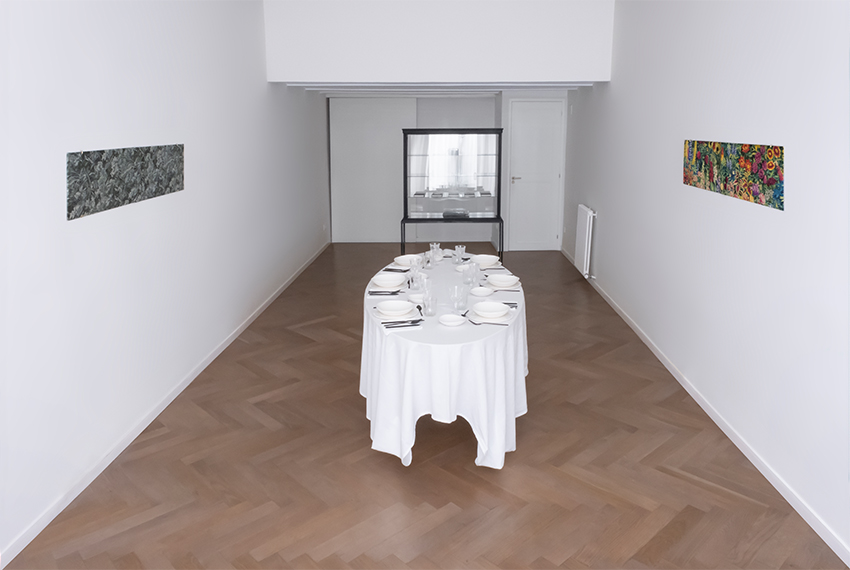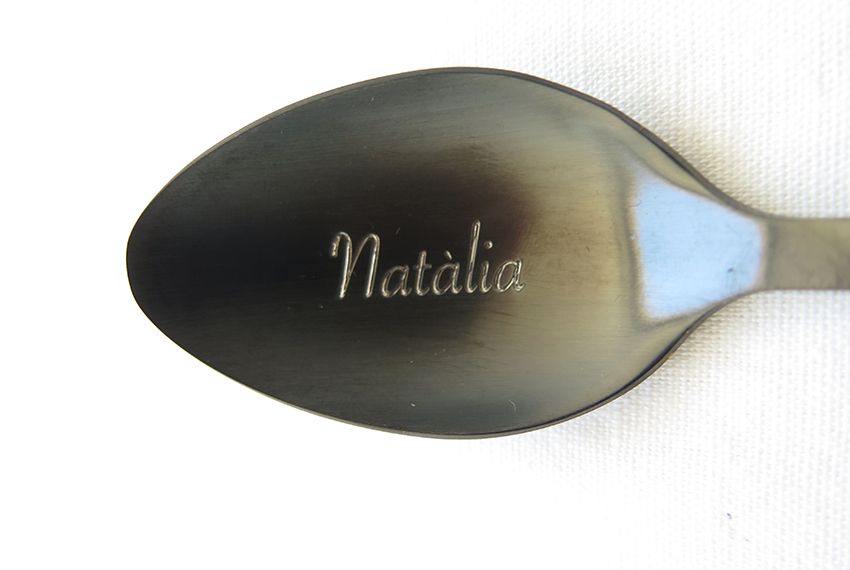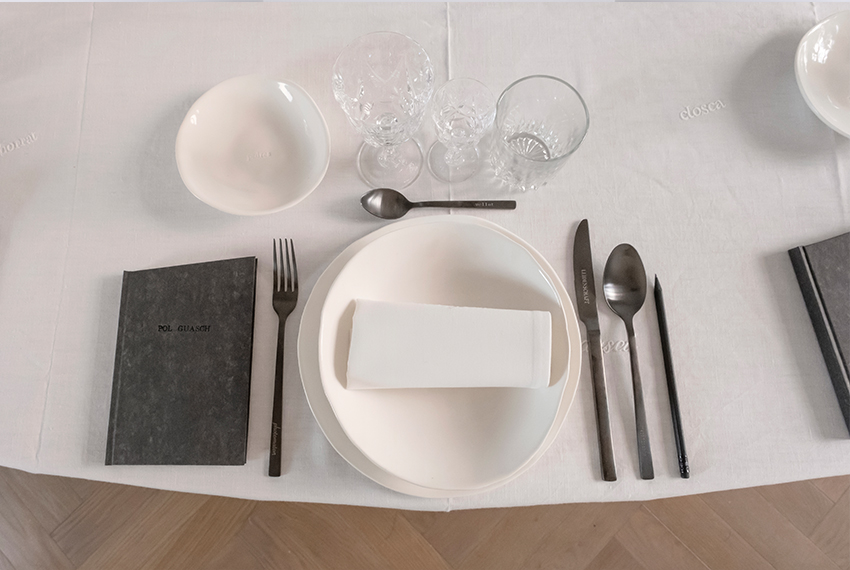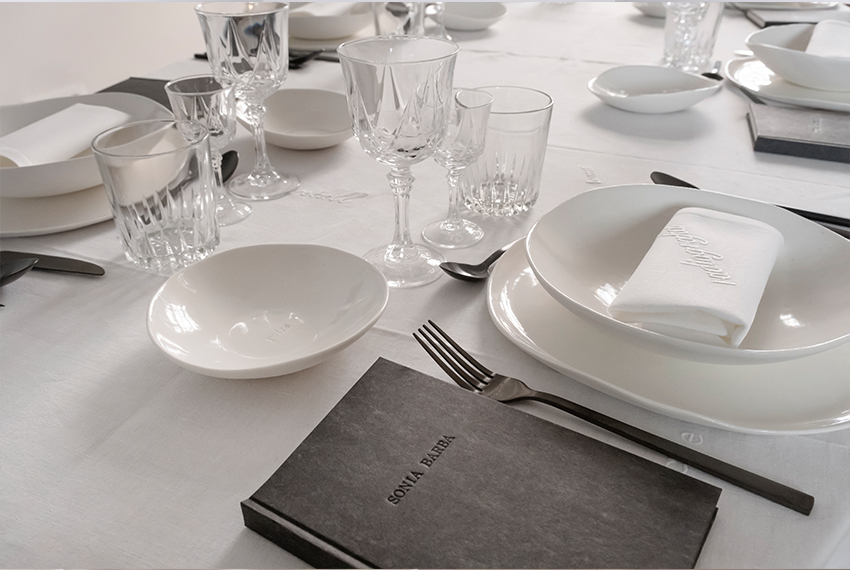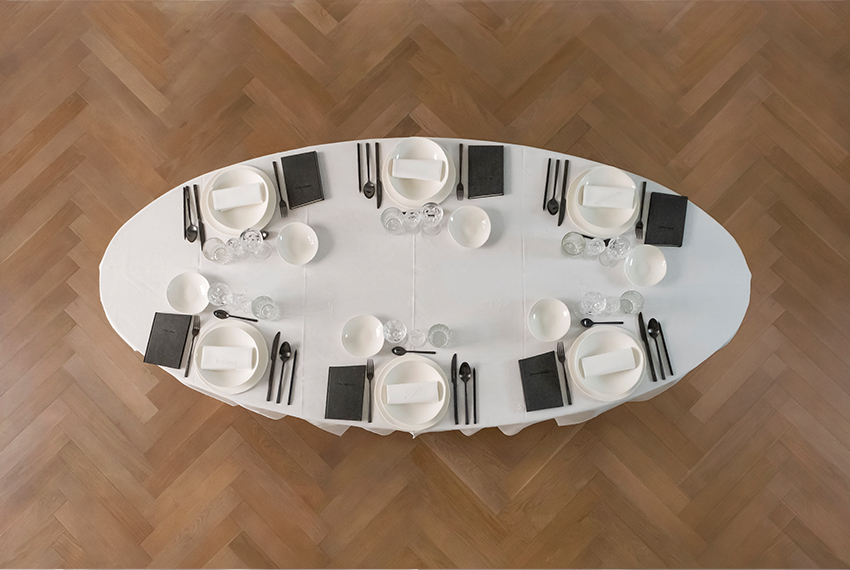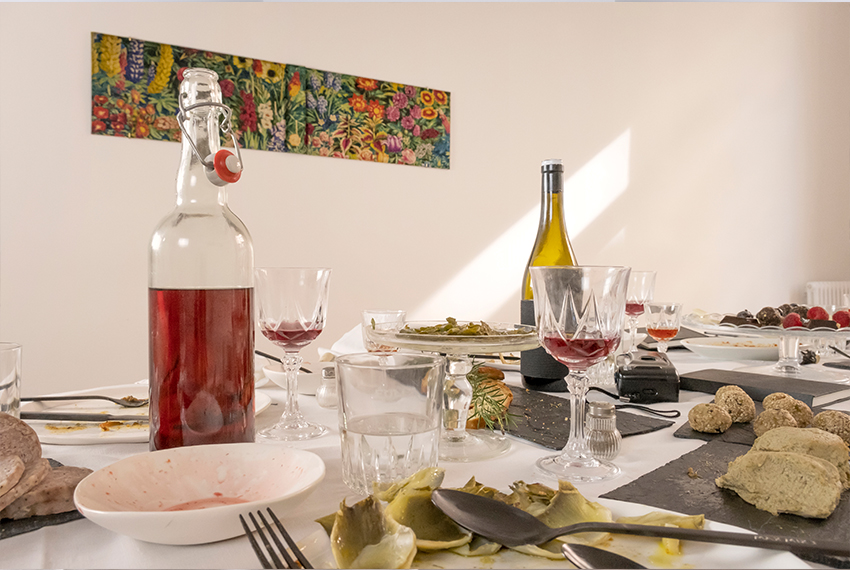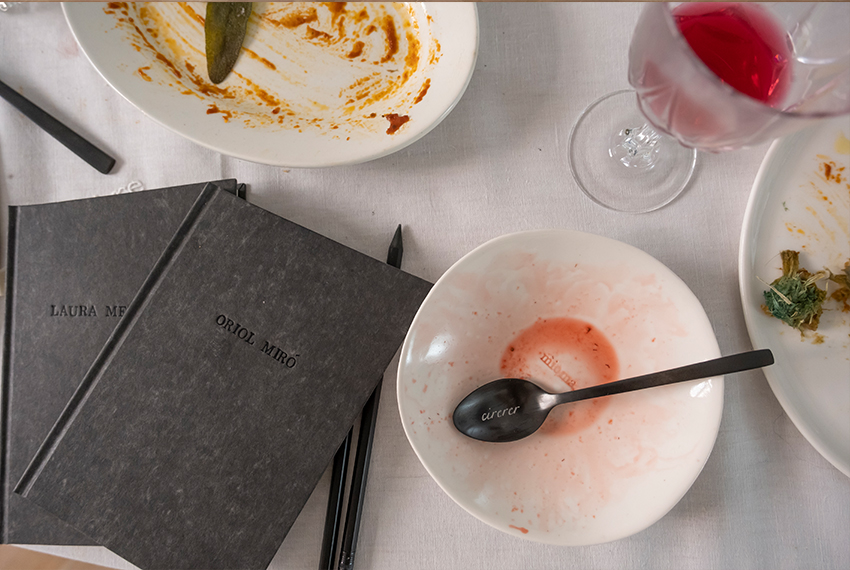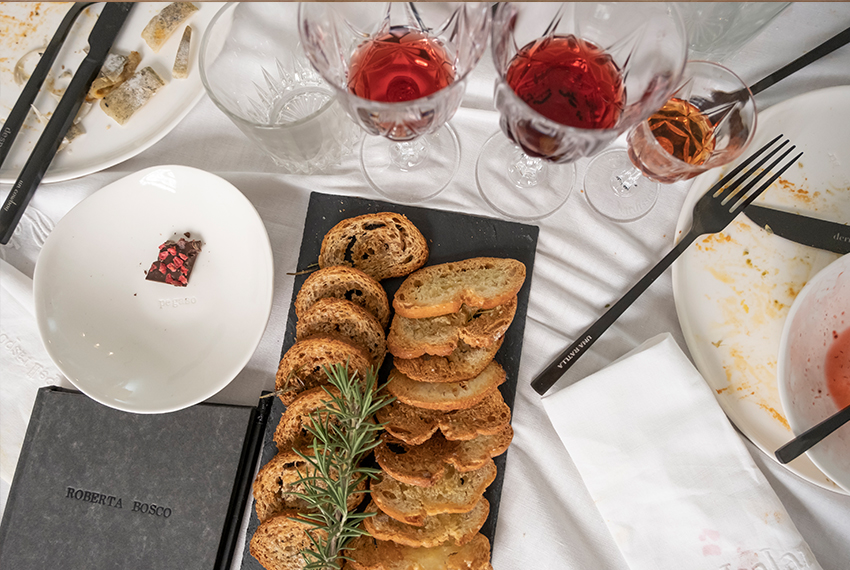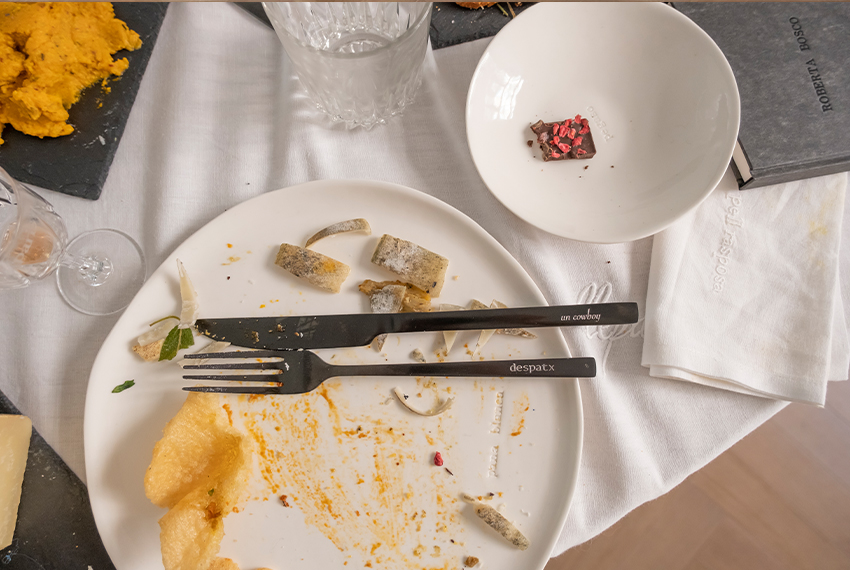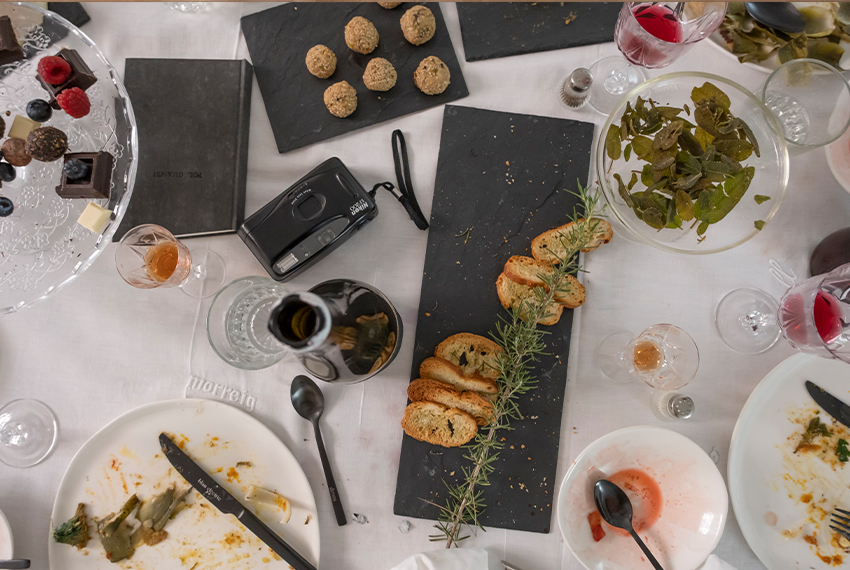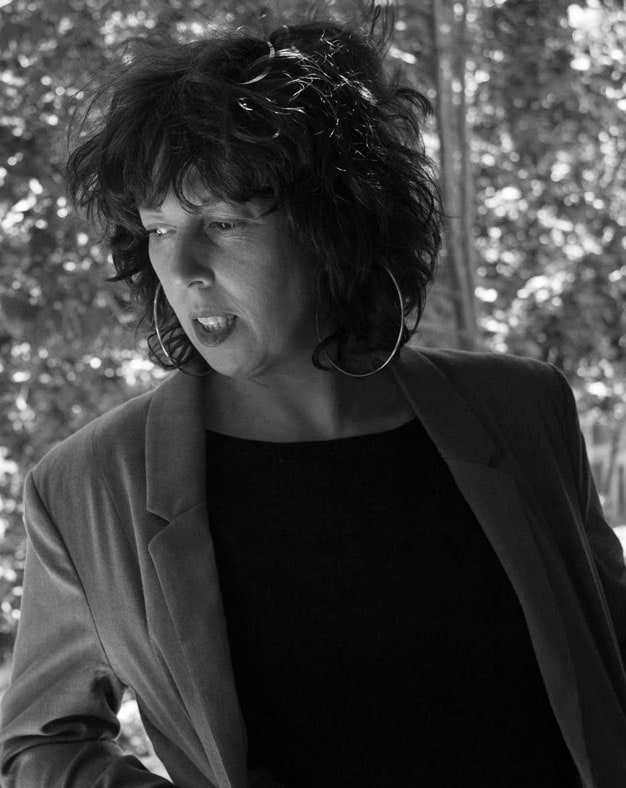
Un álbum Exhibition
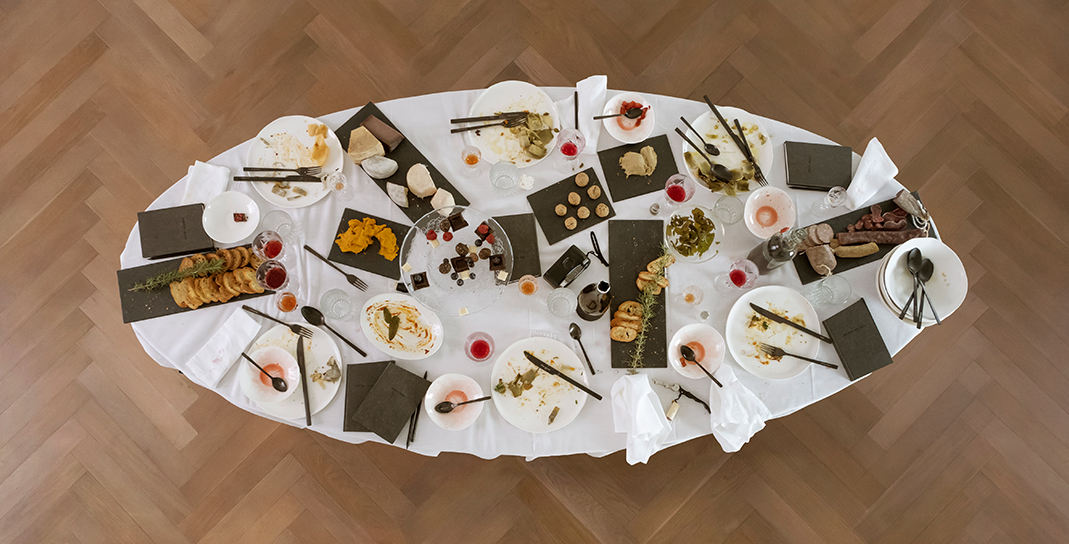
On 15 February, a poet, a journalist, a calligrapher, an actress, a writer and a typographer dined at the gallery around a table that is Mercè Soler‘s album of experiences. An album that has no images, but a series of words inscribed in her memory. And in the table linen, crockery, cutlery and glasses. She was not there. And she was. She invited these six people, who work directly with language, to share their intimacy and generate a new album, the one that emerges from that night.
Eduard Escoffet, Roberta Bosco, Oriol Miró, Sonia Barba, Pol Guasch and Laura Meseguer activated this exhibition with this dinner, which they documented in analogue form: on the paper of a notebook, the reel of a camera, the tape of a tape recorder. At the opening, it was possible to see “a photo” of what happened here. With everything else, Mercè creates a new piece: an artist’s book, an edition, which will be the album of this special dinner and which we present at the end of the exhibition.
Opening: Wednesday, February 16th, 2022, 7 p.m.
When
16 February - 2 April 202216 February 2022 2 April 2022 Tuesday to Friday: 12 am – 8 pm Saturday: 11 am – 3 pm
Where
Chiquita Room- Este evento ha pasado.
Book your tickets for Un álbum
16 February - 2 April 2022
Tuesday to Friday
12 am – 8 pm
Saturday
11 am – 3 pm
Book now
1. Tuesday, February 15, 2022. A table with silverware is laid out in the gallery. A dinner, a menu and a glossary.
Six diners, six notebooks, a tape recorder and a still camera.
No witnesses, no mobile phones, no instructions nor expectations.
Everything that happens during the evening will fade into memory, except for the documents that the guests decide to make in the form of writing, images or sound recordings. If they so wish.
The traces of a shared table will also remain: crumbs on the tablecloth, half- finished glasses and crumpled napkins. Most likely.
Based on these remnants, the artist Mercè will forensically collect the ideas and documentation that will allow her to create an art piece in the form of a book. Seguramente.
2. To Alicia’s displeasure, the books are composed of texts, consisting of words, made up of letters.
The table that welcomes guests is full of inscriptions: words embroidered on the tablecloth, engraved on glasses and cutlery or carved into the porcelain.
Eat me, drink me, read me.
They are part of a unique glossary, a brief list of words that the artist wishes to share with her guests. She likes them for how they sound or what they mean, but in particular, because they are linked to her biography. They all remind her of a place, a time or a specific person. That’s why this printed glossary
is displayed at the table. Do the guests have similar experiences that recall certain words? Will they share them? Do they imagine words in the same way, colour or shape?
The glossary is an appetizer to spark conversation. Of course, letters will come with the soup.
3. If only every evening started as a game and ended with a book.
But there are many kinds of books and infinite ways to break the rules.
In this encounter everything feels at the same time strange and familiar; orchestrated and unpredictable; secret, domestic and public; discreetly unheimlich. Strangers sharing a table, bread and wine, in front of a cupboard. On the other side, only a glass window separates them from the street. Passer- by can have a look at the dinner, and yet only what the guests decide to record will remain: fragments of a night; carefully placed leftovers that will allow a reconstruction of the meaning. This may be the task for the artist.
4.There is a form of Roman mosaic, commonly known as the ‘Unswept Floor’, which depicted the remains of any kitchen or feast: lobster claws, chicken bones, nut shells, and often a little mouse sniffing around the remains. According to their superstitions, the food that fell to the ground was not to be picked up, for it was claimed by the deceased, often buried under the same house. The tradition took shape in this strange artistic genre, which seems to vindicate the idea that no remains are completely lost, for they are the origin of another cycle, another process.
An unmade bed or an uncleared table can also be a starting point. 5. Things worth remembering are always scarce.
6. There is something esoteric and demiurgic about orchestrating experiences to flesh out ideas.
It is a strange form of exchange, which is how creativity should be defined.
Your glossary in exchange for mine. And some words will never be the same again. How else can we grow?
7. There is no reason to list this text, except my love for lists.
Andrés Hispano
Curator
Artist
Mercè Soler
In Berlin she discovered bookbinding and it was on her return to Barcelona, after ten years, that she unites trade and concept. Her books are transcriptions of everything that is not said.
Discover more